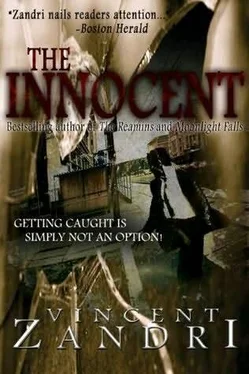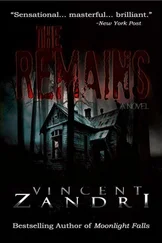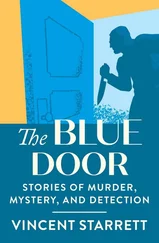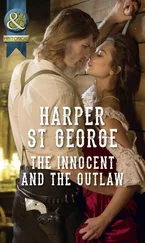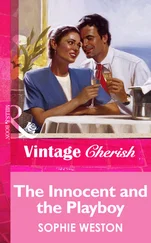By the time we got back to the cabin it was late afternoon. I set the camera up on its tripod in the potato cellar and I attached the video probe. It took a bit more convincing, but eventually Cassandra climbed down with me.
“All we have to do,” I said, forcing the black, super thin camera lens through a knothole in the floorboard beside the access panel, “is snake this baby through here.”
“Bad choice of words,” Cassandra said, examining the controls on the video camera.
In the meantime, I climbed out of the cellar and stood near the door to the cabin.
“Can you see me?”
“Right on,” Cassandra said. “You look about three feet taller and twenty pounds lighter.”
I suggested that the vision must be a real improvement. Cassandra laughed and disagreed saying she preferred solid muscular men to skinny wimps.
Next I repositioned the TV so that the screen faced the cellar and the camera lens.
“How about the TV screen?” I inquired.
“I’m getting the whole thing,” Cassandra said. “You and the TV.” She came back out of the cellar, brushed away some of the dust and dirt from her pants. “There’s just one thing that’s got me perplexed.”
“What is it?” I said, moving away from the door and pulling back the shade on the picture window, making my usual check outside.
“Why don’t you just make a copy of the video once you get ahold of it, and send it off to the governor or some bureaucrat like that. I mean, why go to all this trouble?”
“We don’t have time for all that,” I said, letting the shade fall back. “Besides, it’s not the film I’m so concerned with. It’s Pelton’s and Schillinger’s reactions to the film that I’m more interested in.”
She nodded.
“I want to see their faces when I get them to admit that they pulled the trigger on Vasquez, and I want them to see my face when they admit that they set me up to take the fall, and I want to record the event on tape-not just for the governor, but for all the world to see.”
Cassandra turned away and stood in front of the picture window that looked out onto the east-west road and the trout stream alongside it.
“You may have a tough time getting them to do that,” she suggested.
“Who knows,” I said, “I’ve been known to get lucky from time to time.”
“Not lately.”
THE NEXT MORNING, I drove to the Ironville post office to retrieve the box that Tony’s Guinea Pigs had (God willing) found and overnighted from Olancha. The post office was a small brick building with a slate roof and old, French windows. The Formica counter held a cash register as well as a weight scale for packages. On both sides of the counter were walls of post office boxes. The boxes were the same old, wrought-iron compartments I recalled from my youth when I’d ridden shotgun beside my grandfather going to pick up his mail on Saturday mornings. On display in a glass booth below the counter were the featured stamps of the month, which, it turns out, were the faces of jazz legends the likes of Duke Ellington, Mel Torme, and even the chairman of the board himself, Sinatra. Maybe one day there’d be a stamp of the keeper and his famous drums.
On the drive from the cabin to the post office I’d wondered how good an idea it had been to use my grandfather’s name on the package. Considering that things never changed this far north, there was the distinct possibility that the man or woman working behind the counter would have known my grandfather. Luckily, the kid behind the counter could not have been more than eighteen years old. He had long hair parted in the middle. The hair had been dyed yellow as opposed to natural blond. It probably hadn’t been washed in two, maybe three weeks, and it hung down in clumps, like starchy spaghetti. He wore a T-shirt, on the front of which was the visage of Kurt Cobain, the self-assassinated rock star who seemed to be the model for the kid’s obsession with the same straggly yellow hair, the same it-sucks-to-be-alive expression, and the same three-day-old growth. Below Kurt’s picture were the dates 1967-1994. It bothered me to know someone could be so young, so rich, and so resentful of the world. Maybe old Kurt’s death was really murder, a cover-up for something else? Maybe someone should have interrogated his wife?
I stepped up to the counter.
“Package for Marconi,” I said.
“First name,” the kid said.
“Pasquale,” I said.
“What?” the kid asked, eyebrows upturned.
“Pasquale,” I repeated. “It’s Italian for Patrick.”
“Hang on,” the kid said. He turned and went through the swinging, restaurant-style door that led to the distribution area in back. It seemed like the entire operation would be a piece of cake. But then I spotted a stack of the FBI’s most wanted posters tacked to the bulletin board on the plaster-coated wall beside me. I imagined my face there for all of Ironville to see as they retrieved their junk mail. All twelve hundred people. The five-by-seven, black-and-white poster would show my face, head-on, and a left-side profile. In the photo, I would be frowning, my mustache covering my upper lip, my eyes dark. My face would not have been shaved in many days and the salt-and-pepper stubble would match the slicked-back salt-and-pepper hair on my head. My thick, muscular neck would meet my overdeveloped trapezius muscles at the bottom of the photograph. My neck would support a thin chain supporting a placard with a seven-digit ID number, and to the innocent bystander, I would appear more like a hit man than a lawman.
Kurt Cobain returned with a box cradled in his skinny arms.
“This just came in, overnighted from California.”
I signed for the box and took it in my arms. Then I did something very strange. What I mean is, I should have sprinted for the door, jumped into the Pontiac, raced back to the cabin. Instead I found myself hesitating for a second or two.
“It’s a shame,” I said, nodding toward the Kurt Cobain T-shirt. “I understand he was a father.”
“Yeah,” the kid said, “so what?”
“Maybe,” I said, “old Kurt never thought life was worth living. Not even for the sake of his child.”
“You sound like my old man,” the kid said, now leaning against the counter. “He likes to sit inside the trailer, watch satellite TV, drink beer, and talk about the good life. Whatever that is.”
“It’s life anyway you look at it,” I said. “And it’s the only one you got.”
The kid frowned.
I left.
BACK AT THE CABIN, I opened the package with a steak knife, slicing through the layers of duct tape and cardboard, careful not to destroy any of the contents in the process. When I peeled back the folds, I found three plastic baby dolls inside, just like Cassandra said I would. The dolls were protected with piles of crumpled-up newspaper. I pulled out the paper and tossed it into the fireplace where it quickly caught fire.
Beneath the newspaper, I found the money, neatly stacked.
There had to be hundreds of hundred dollar bills. Thousands actually.
“You took a real chance shipping cash this way,” I said.
“What choice did I have,” Cassandra argued, “UPS?”
For a moment or two, I just looked at her.
Then I said, “Yeah, UPS would have been good.”
I picked up the first doll, placed it against my right ear, shook it, discovered a slight rattling.
Cassandra held her hands out to me, took the doll into her arms and cradled it, as if the doll were a real baby. She turned it over and pulled up the white taffeta gown the toy-maker had dressed it in. The back of the doll had been cut up and down along the spine and then sewn back together with fishing line. Not a very neat job, but it seemed to have done the trick. Cassandra placed the doll down on the table.
Читать дальше
